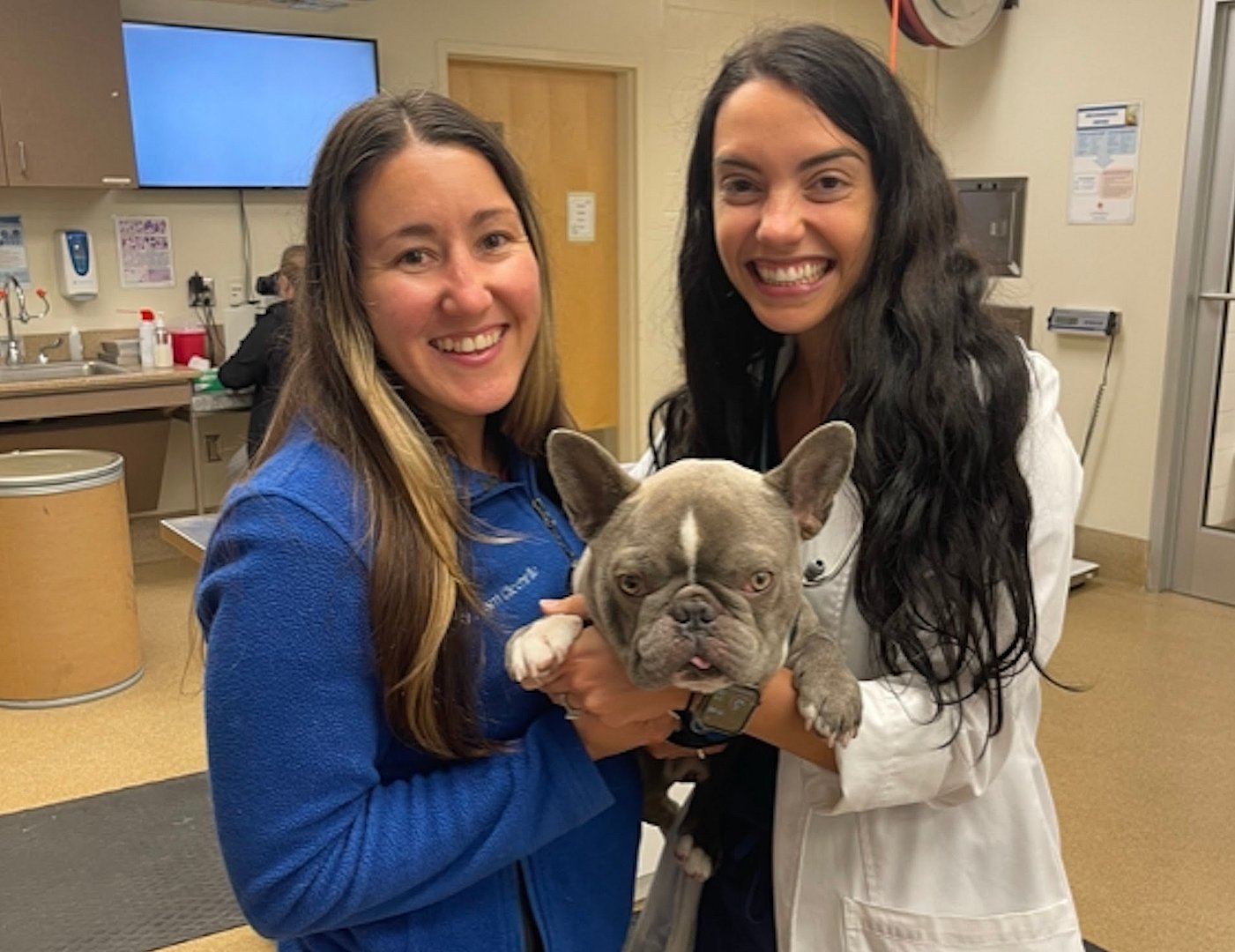Get Healthy!

- Ernie Mundell
- Posted October 2, 2024
George the Frenchie's Cancer Journey May Help Other Dogs and Even Children
The short but much-loved life of a French bulldog named George leaves a legacy of learning for those who care for animals and humans.
George's owner Louis Tavares, of Windemere, Fla., brought him to doctors at the University of Florida's College of Veterinary Medicine’s Small Animal Hospital in late 2023, with what appeared to be a small mass on the 2-year-old pup's chest.
It appeared to be cancer, but what type of cancer would long elude George's care team.
Tumor biopsies, chest X-rays and ultrasounds all suggested a blood cancer such as lymphoma. However, lab studies and molecular analyses on George's tumor cells eventually ruled out that diagnosis.
In the meantime, he had been placed on lymphoma chemotherapy.
“Once he got to UF, George responded immediately and incredibly to treatment, and would spend the next eight months chasing his ball every single day,” Tavares said in a university news release. “Although George was terribly sick when he arrived at UF, until close to the very end, no one would have suspected he had cancer.”
It took a barrage of further tests -- CT scans, MRIs and a tissue biopsy -- to discover that the tumor had entered George's spinal canal.
“This tumor was way more invasive than we could have ever imagined. The prior imaging with radiographs and ultrasound just didn’t do it justice,” said a member of George's care team, Dr. Leah Ackerman.
“This clearly wasn’t lymphoma; it was just not behaving like lymphoma. But in such a young dog, what could it be?" said Ackerman, who is a resident oncologist at the animal hospital.
Her team finally arrived at a correct diagnosis: George was the first known canine case of a peripheral primitive neuroectodermal tumor (pPNET), originating from his chest cavity, the team said.
The feisty Frenchie has proven to the doctors that it's important to forge ahead for a proper diagnosis, even when it's challenging.
“Every step of George’s journey has provided invaluable insights for veterinary oncology,” Ackerman said. “If the clinical picture doesn’t fit perfectly, we must explore further. George’s case reminds us not to get blinded by common diagnoses and to pursue individualized, precision-based medicine for each patient.”
In another first, George's tumor cells were subjected to an NCI-179 chemotherapy panel. This is a kind of test that's only been used previously in humans. It can help determine which drugs might work best to fight the pPNET tumor.
Ackerman and colleagues decided to focus treatment on radiation therapy, chemotherapy and an experimental immunotherapy vaccine created by Rowan Milner, a UF professor of medical oncology and a member of the UF Health Cancer Center.
George did respond to the new vaccine, which Milner called "an eye-opener for all of us.”
“The fact that George’s tumor responded to our immunotherapy vaccine showed us how much we’re still learning about the power of immunotherapy and the need to sometimes think outside of the box,” Milner said.
Despite all these efforts, George's cancer was so invasive that he passed away from his disease in July.
However, his team's dedication to a correct diagnosis and optimum treatment extended his life by about eight months, the care team said.
“We did everything,” Tavares said. “George had such an amazing quality of life, and every day we got was a blessing.”
Cancers like pPTEN are rare but can affect human children as well. Ackerman and her colleagues plan to write up an academic paper on George's case that they hope will eventually help other animals and children with the disease.
For Tavares, George's legacy is even greater.
“George was one of the greatest teachers of my life,” he said. “In his two short years, he taught me more than I ever thought possible about being present in the current moment, unconditional love, spirituality and how to live and fight on in the face of unsurmountable odds.”
SOURCE: University of Florida, news release, Oct. 1, 2024







